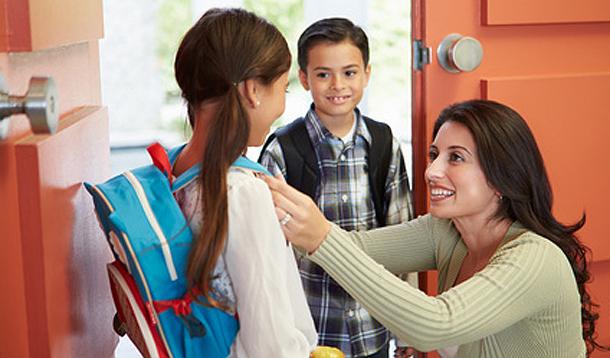
Back-to-school can be a tough time of transition for a lot of kids. Will my best friend be in my class? Will I like my new teacher? How much homework will I get this year? But for children who are also dealing with a chronic illness, back-to-school season can feel like a nightmare.
Kids with Crohn’s disease and ulcerative colitis, the two main kinds of Inflammatory Bowel Disease (IBD), struggle because these diseases are unpredictable and embarrassing, which can lead to a lot of stress. Essentially, IBD causes inflammation and ulceration, or sores, in the digestive tract. It can cause pain, diarrhea, and blood loss. Children living with IBD often need to use the bathroom urgently and unexpectedly.
I bet you remember how difficult it was to be a kid, especially during the awkward middle school and high school years. Imagine how hard it is for a child who experiences unpredictable diarrhea, abdominal pain, or bloody bowel movements at the most inconvenient times. Say, during gym class? Or...silent reading time?
Because of the nature of their illness, children with IBD need to have immediate access to a bathroom. But at school there are potential barriers to this. Teachers, hall monitors, playground patrol—these adults may be well-meaning and simply upholding school rules, but anyone who stops a student with IBD from going to the bathroom is causing that child extreme distress, physically and emotionally.
Bathroom access isn’t the only issue. Children with IBD may not absorb nutrients properly, which means they can often feel tired or unwell. What’s more, the potent medications used to treat IBD can cause side effects, like a weakened immune system, puffy cheeks, and severe acne. Some of these can lead to physical issues like secondary infections, and some can badly damage a kid’s self-esteem.
If you have a child with IBD, you have probably learned a lot about the disease out of necessity. Unfortunately, your child’s teacher may know little to nothing about it, and may not have the first idea how to help. They likely won’t even know what problems may arise in the first place. Your child is probably feeling anxious and apprehensive about going to school and having to explain the disease to grownups—an embarrassing and difficult subject for anyone, let alone for kids.
That’s why the Blackboards and Bathrooms tool, a new IBD education resource, can be such a lifesaver. Developed by the Canadian Digestive Health Foundation in collaboration with Robbie’s Rainbow, Blackboards and Bathrooms offers teachers a quick and easy way to learn all the key facts and issues surrounding IBD.
Like:
My recommendation is to have a chat with your child’s teacher and the school principal right at the beginning of the school year. Print off and provide the principal, resource teachers and/or teachers with the Blackboards and Bathrooms resource. Encourage them to keep a copy on file and post it in staff rooms.
The best part of this kit, in my opinion, is the all-access bathroom pass. This is something a student with IBD can carry with them to hand to any grownup who may not understand the urgency of their request to use the bathroom.

For a child anticipating the stress of going back to school, it’ll be a big relief to know that the teachers will be aware and informed about IBD, and won’t hinder bathroom access. You can reassure your child that the school staff will be able to understand and help support him or her.
Then, maybe instead of worrying about being allowed to go to the bathroom when diarrhea strikes, she’ll be able to simply focus on the other stuff—the things a kid should be thinking about.
Like whether or not her best friend will be in her class this year.
